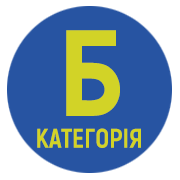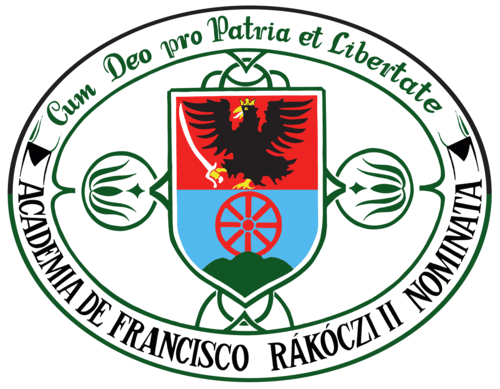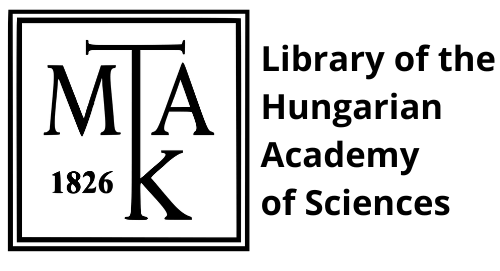On the results of the reading comprehension competency assessment among first-year students of the Ferenc Rákóczi II Transcarpathian Hungarian College of Higher Education
DOI:
https://doi.org/10.58423/2786-6726/2023-1-26-43Keywords:
reading comprehension, college students, measurement, competence, TranscarpathiaAbstract
In the 2022–2023 academic year, in addition to the previously conducted mathematics competency assessment the Ferenc Rákóczi II Transcarpathian Hungarian College of Higher Education also measured reading comprehension. The aim of the survey was to examine all the first-year students. However, due to the continuous air raids and upper respiratory epidemics, the initial plan to involve all the first year students could not be successfully completed. This age group was selected because after finishing school the maturity exam in Hungarian language measures the ability to comprehend a text. Thus, the results obtained provide a credible picture of the effectiveness of mother tongue teaching in schools, while also providing empirical data that outline the detailed components and possible causes of poor reading comprehension competence, which is a serious problem to be solved. Overall, the assessment of reading comprehension at the institution can be described as useful. Most of all, it can be seen as a pilot test the data of which can be used effectively in the coming years for the development of effective teaching methods and mother tongue teaching in schools, in particular. The obtained results revealed certain difficulties in reading comprehension and highlighted the necessity of these measurements at the level of higher education. After all, improving the reading comprehension skills of Hungarian schoolchildren in Transcarpathia is primarily the task of teachers, and not only of primary school teachers and Hungarian language teachers.
References
Mazorcsuk, Marija (Мазорчук Марія) szerk. 2019. Національний звіт за результатами міжнародного дослідження якості освіти [National report on the results of an international study of the quality of education]. PISA-2018. Київ: Український центр оцінювання якості освіти. (In Ukrainian).
Beregszászi Anikó, Márku Anita 2003. A kárpátaljai magyar középiskolások nyelvhasználatáról [On language use by Hungarian secondary school students in Transcarpathia]. In: Csernicskó István szerk. A mi szavunk járása: Bevezetés a kárpátaljai magyar nyelvhasználatba. Ungvár: PoliPrint. 179–207.
(In Hungarian).
Beregszászi Anikó, Csernicskó István 2021. Szövegértési kompetencia-mérés magyar nyelven tanuló kárpátaljai magyar egyetemisták és főiskolások körében [Measurement of reading comprehension competence among Transcarpathian Hungarian university and college students studying in Hungarian]. In: Csernicskó István, Kozmács István szerk. Kétnyelvűség – oktatás – nyelvmenedzselés: Írások, tanulmányok Vančo Ildikó születésnapjára. Nyitra: Konstantin Filozófus Egyetem. 53–66. (In Hungarian).
Csernicskó István 2015. A kárpátaljai magyar nyelvű oktatás színvonaláról [On the quality of Hungarian language education in Transcarpathia]. In: Márku Anita – Hires-László Kornélia szerk. Nyelvoktatás, kétnyelvűség, nyelvi tájkép. Tanulmányok a Hodinka Antal Nyelvészeti Kutatóközpont kutatásaiból. Ungvár: Autdor-Shark. 13–26. (In Hungarian).
Ferenc Viktória 2014. Ami a nemzetközi mérésekben nem látszik: tanulói kompetenciák Kárpátalján [What is not visible in international measurements: student competences in Transcarpathia]. Kisebbségkutatás 2014/4: 188–221. (In Hungarian).
Kovács Alexandra Kitti 2019a. Szövegértési kompetenciavizsgálat az Ungvári Nemzeti Egyetem Ukrán–Magyar Oktatási-Tudományos Intézete I., IV. és V. évfolyamos hallgatóinak körében. Teljesítmény a szociális háttér tükrében [Comprehension competency test among the students of the Ukrainian-Hungarian Institute of Education and Science of the Uzhhorod National University of Uzhhorod, 1st, 4th and 5th years. Performance in the light of social background]. Közoktatás 2019/1. 19 – 23. (In Hungarian).
Kovács Alexandra Kitti 2019b. Szövegértési kompetenciavizsgálat az Ungvári Nemzeti Egyetem Ukrán–Magyar Oktatási-Tudományos Intézete I., IV. és V. évfolyamos hallgatóinak körében [Comprehension competency test among the students of the Ukrainian-Hungarian Institute of Education and Science of the Uzhhorod National University of Uzhhorod, 1st, 4th and 5th years]. In: Boda Attila szerk. Ingenia Hungarica V. Tanulmányok az V. Kárpát-medencei Szakkollégiumi Konferencia előadásaiból [Studies from the presentations of the 5th Carpathian Basin College Conference]. Budapest: ELTE Eötvös József Collegium. 191–218. (In Hungarian).
Kovács Alexandra Kitti 2019c. Szövegértési kompetenciavizsgálataz Ungvári Nemzeti Egyetem Ukrán–Magyar Oktatási–Tudományos Intézete hallgatóinak körében [Reading Comprehension Competency Test among students of the Ukrainian-Hungarian Institute of Education and Science of the National University of Uzhhorod]. Magiszteri dolgozat. II. RFKMF. (In Hungarian).
Lakatos Katalin 2010. Kárpátaljai magyar iskolások nyelvi tudata és attitűdje. Doktori értekezés [Language awareness and attitudes of Hungarian schoolchildren in Transcarpathia. Doctoral thesis]. Budapest: ELTE Nyelvtudományi Doktori Iskola. (In Hungarian).
Molnár Anita 2009. Tannyelv és nemzeti identitás kapcsolata egy 2006-os felmérés tükrében [The relationship between language and national identity in a 2006 survey]. In: Karmacsi Zoltán és Márku Anita szerk. Nyelv, identitás és anyanyelvi nevelés a XXI. században [Language, identity and mother tongue education in the 21st century]. Ungvár: PoliPrint. 122–127. (In Hungarian).
Molnár Anita 2010. Nyelvi ideológiák és nyelvválasztás összefüggéseiről a kárpátaljai magyarok körében [On the relationship between language ideologies and language choice among Transcarpathian Hungarians]. In: Kozmács István, Vančoné Kremmer Ildikó szerk. Közös jövőnk a nyelv II. Nyelvtudomány és pedagógia, Tudomány az oktatásért – oktatás a tudományért, Veda pre vzdelanie – vzdelanie pre vedu, Science for Education – Education for Science. Univerzita Konštantína Filozofa v Nitre Fakulta stredoeurópskych štúdií. Nyitra: Konstantin Filozófus Egyetem Közép-európai Tanulmányok Kara. 53–63. (In Hungarian).
Orosz Ildikó – Pallay Katalin 2020. A kárpátaljai magyar oktatás helyzete a 2019-es külső független érettségi eredményeinek tükrében [The situation of Hungarian education in Transcarpathia in the light of the results of the 2019 external independent school-leaving examination]. Beregszász–Ungvár: II. RFKMF – „RIK-U” Kft. (In Hungarian).
Papp Z. Attila 2014. Iskola és képesség: egy 2013-as pilot-kutatás tanulságai [School and ability: lessons from a pilot study in 2013]. Kisebbségkutatás 23/4: 93–125. (In Hungarian).
Séra Magdolna 2009. Képzelet és valóság találkozása a kárpátaljai magyar szülők tannyelv-választási döntéseiben [Imagination meets reality in the language choice decisions of Transcarpathian Hungarian parents]. In: Karmacsi Zoltán és Márku Anita szerk. Nyelv, identitás és anyanyelvi nevelés a XXI. században [Language, identity and mother tongue education in the 21st century]. Ungvár: PoliPrint. 154–157. (In Hungarian).
Séra Magdolna 2010. Érvek és ellenérvek az iskolai tannyelvválasztásban (avagy az oktatáspolitikai változások hatása a kárpátaljai magyar közösségre, irányított beszélgetések alapján) [Pros and cons in school language choice (or the impact of educational policy changes on the Hungarian community in Transcarpathia, based on guided interviews)]. In: Fábri István – Kötél Emőke szerk. Határhelyzetek 3. Önmeghatározási kísérletek: hagyományőrzéstől a nyelvi identitásig [Constraints 3. Attempts at self-definition: from tradition to linguistic identity]. Budapest: Balassi Intézet Márton Áron Szakkollégium. 161–185. (In Hungarian).
Szinger Veronika 2017. PISA-konferencia a Magyar Tudományos Akadémián [PISA conference at the Hungarian Academy of Sciences]. Anyanyelv-pedagógia. X. évf. 2. sz. 79–86. (In Hungarian).
PISA 2018. Összefoglaló jelentés [Summary report]. Oktatási Hivatal. https://www.oktatas.hu/pub_bin/dload/kozoktatas/nemzetkozi_meresek/pisa/PISA2018_v6.pdf
Downloads
Published
How to Cite
Issue
Section
License
Authors retain copyright and grant the journal the right of first publication. The work is simultaneously licensed under a Creative Commons Attribution 4.0 International License (CC BY 4.0), which permits others to share the work with appropriate credit given to the author(s) and the initial publication in this journal.

















